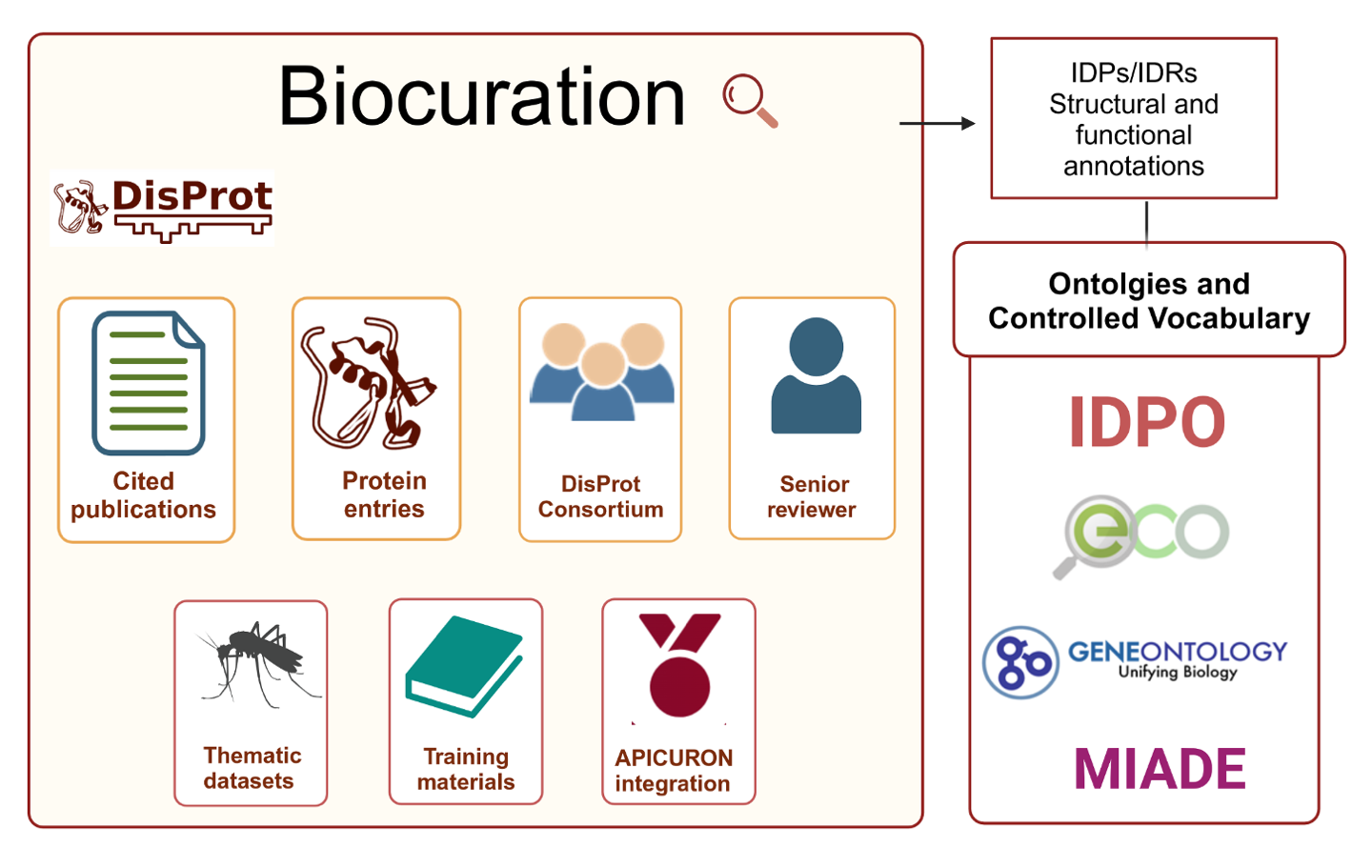Curated databases have become an essential part of modern molecular biology.
The curated databases and scientific data collected result from the significant work and effort of the biocurator community.
In simplified terms, they
- Collect scientific data from the literature;
- Verify and validate the collected information;
- Use formats and ontologies to standardize and logically structure the information;
- Finally integrate the data into curated databases.
One of the central activities at the BioComputing UP group is the manual curation of curated databases in the context of Intrinsically Disordered Proteins and Regions (IDPs/IDRs), such as DisProt

DisProt is the major manually curated repository of Intrinsically Disordered Proteins, covering both structural and functional aspects. Data collection, annotation, and integration in DisProt are the results of the work and effort of expert curators (BioComputing UP members) and worldwide volunteer curators— the DisProt Consortium.
Curators annotate experimentally confirmed IDPs or IDRs through a dedicated curation interface using intrinsic disorder–related annotation terms. The community of curators collaborates on the DisProt version released every six months and thematic datasets creation, which are collections of proteins defining disordered proteins associated with a specific biological mechanism, pathology, or organism.
Training and Guidelines
To ensure the correct interpretation of data from the literature, the high quality annotations, the knowledge dissemination of IDPs, and facilitate participation in curation activities, the DisProt team offers various format of training sessions and guidelines:
- E-learning courses available on the ELIXIR eLearning platform, offered in both English and Spanish, include recorded videos and downloadable materials.
- In-person and virtual training sessions are available at DisProt
- Guidelines to facilitate the dissemination of knowledge on IDPs and participation in curation activities: Best practices for the manual curation of intrinsically disordered proteins in DisProt.
Ontologies
The integration of ontologies and controlled vocabularies in DisProt contributes to increasing the quality and value of collected data by improving standardization, reproducibility, interpretation, and dissemination.
In collaboration with other consortia and the ELIXIR IDP Community, the DisProt team has an important role for maintain the IDP-related Gene Ontology, Evidence and Conclusion Ontology and Intrinsically Disordered Proteins Ontology (IDPO) to represent IDP/IDR protein function and the techniques used to assess the presence of disorder.
Along with HUPO-PSI, the DisProt consortium contributed to the Minimum Information About Disorder Experiments (MIADE), which provides guidelines for unambiguously reporting IDP experiments.
-

María Victoria Nugnes
-

Federica Quaglia
-

Maria Cristina Aspromonte

